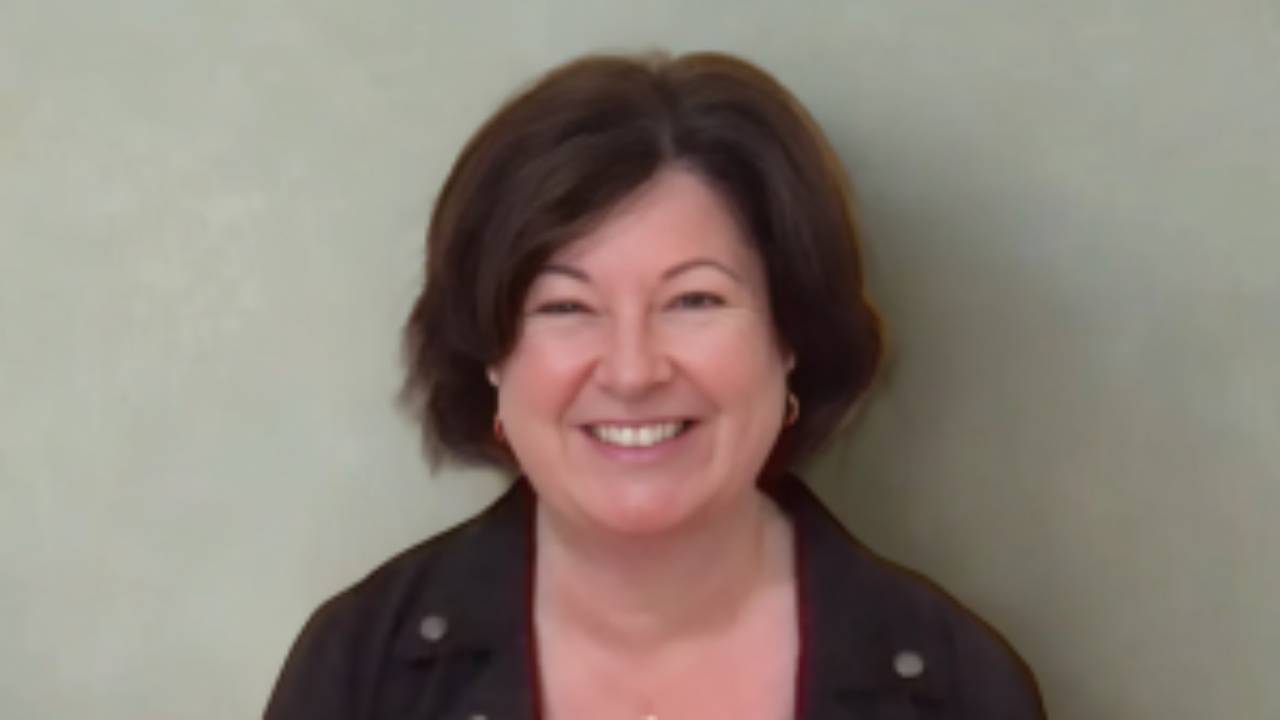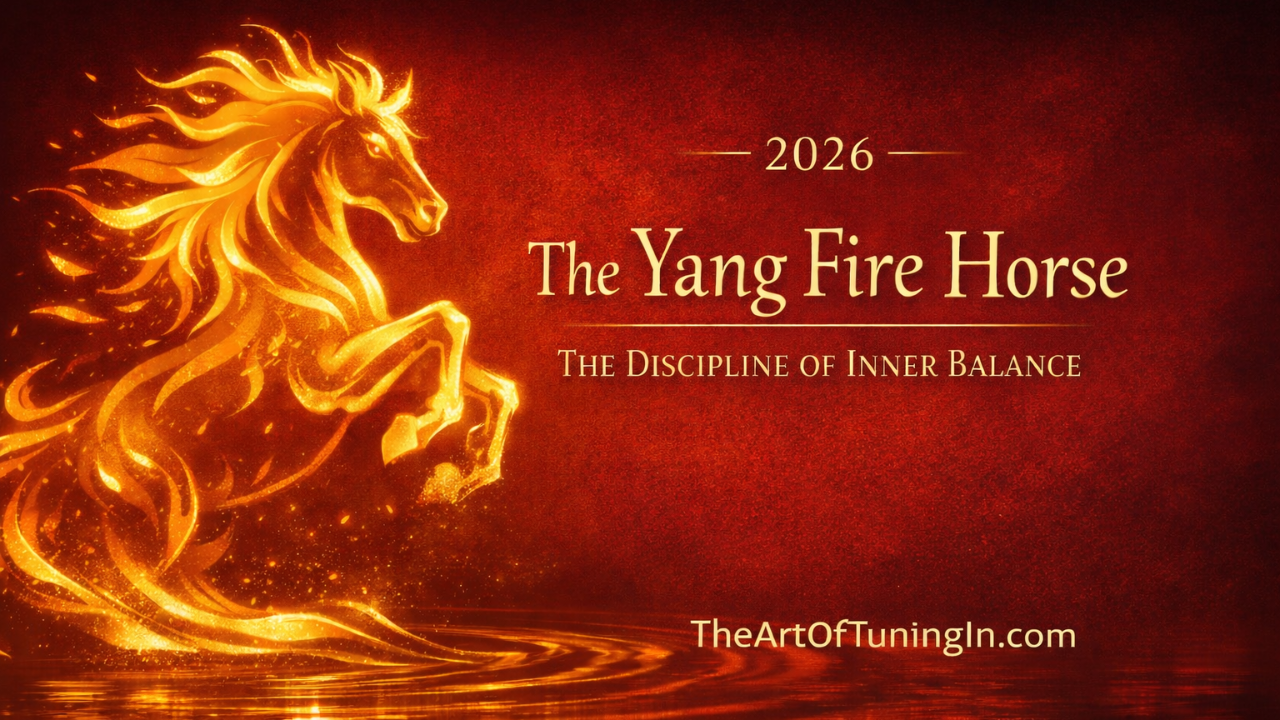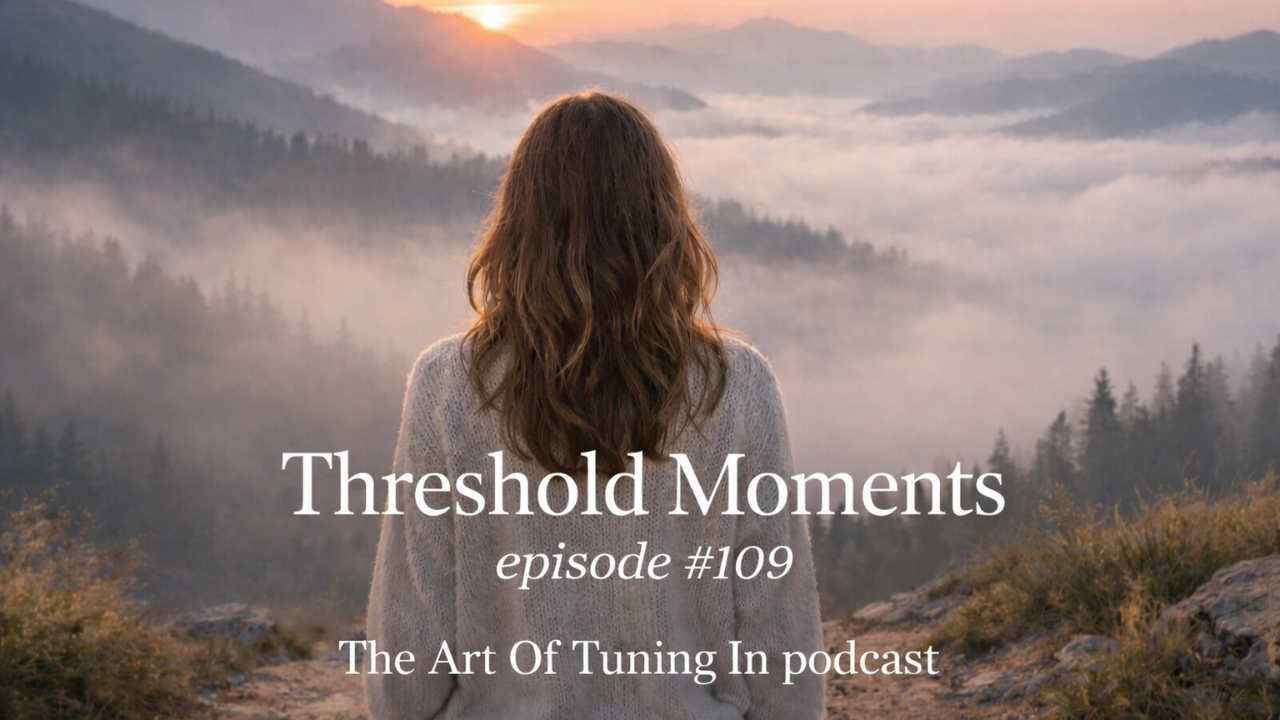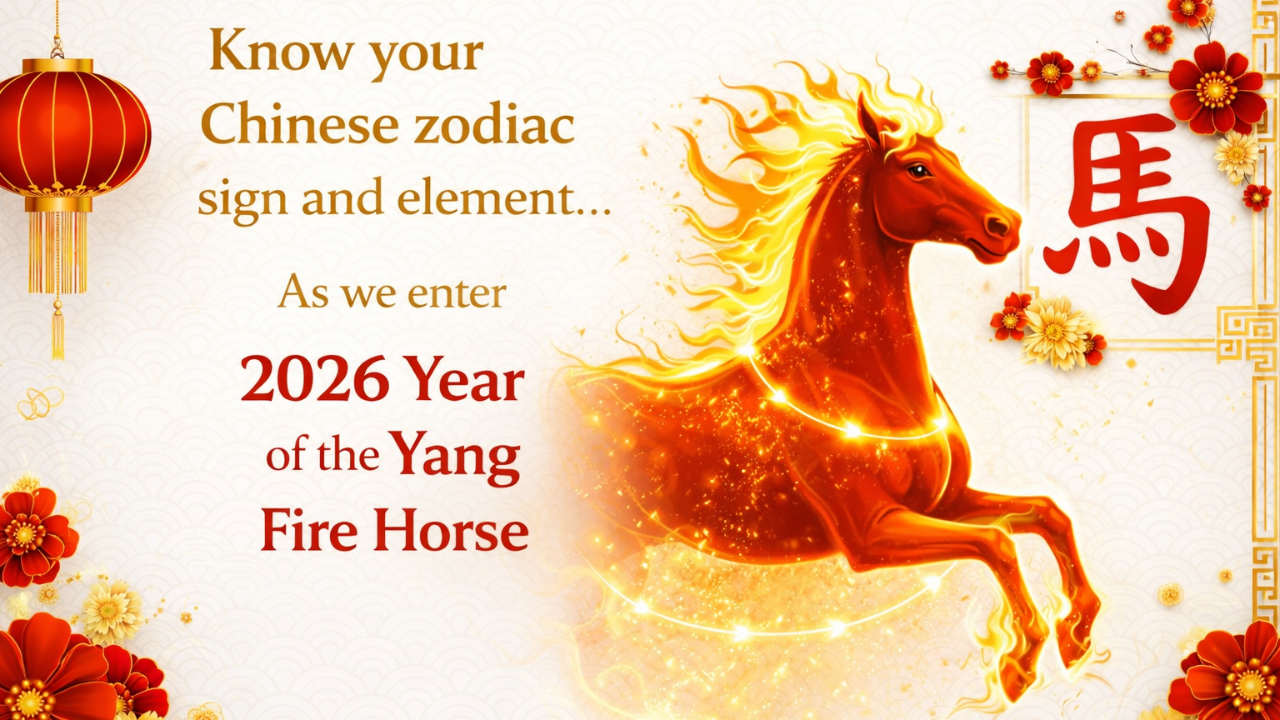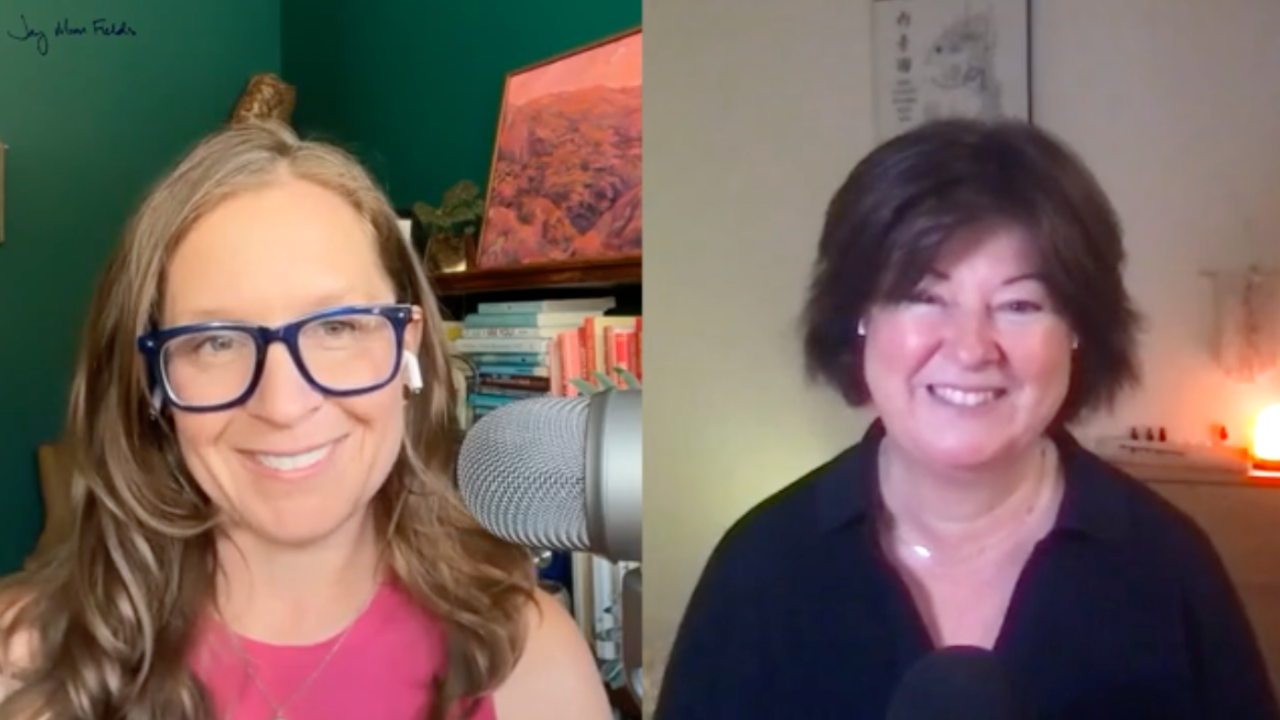What is Qigong? | #004
Sep 02, 2019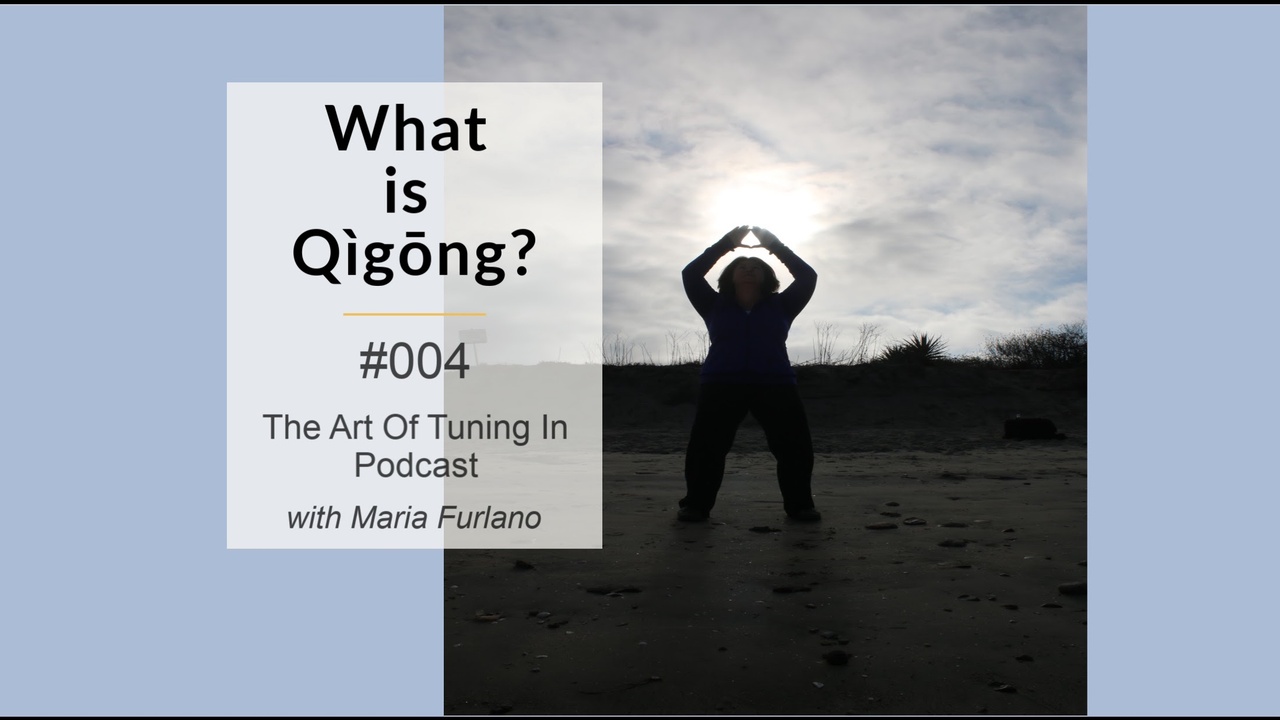
I began training in the energetic and martial arts when I was 12 years old and Qigong has been an integral part of my life. Today, I'd like to share (in simple terms) what Qigong is.
*Please subscribe to this podcast on your favorite app: Apple Podcasts | Google Podcasts | Podcast Addict | Stitcher | TuneIn | Listen Notes | Spotify | Player FM | Vurble
What is Qigong?
Hello and welcome. This is Maria Furlano - thank you for being here. Today we're going to talk about Qì Gōng a topic that's very dear to my heart, but before we get into today's topic...
Breathing Break
00:26: If you would please take a nice deep breath for me with a nice long exhale. It'll bring us fully present into the moment. So if you could inhale for me to a count of three one, two, three and then your exhale is going to be longer than your inhale 5-4-3-2-1... Inhaling again to a count of three... Exhaling to the count of 5-4-3-2-1.
The reason why we want the exhale to be longer than our inhale is because a longer exhale helps us release energy and it sends a signal to our parasympathetic nervous system to relax. Our brain also sends a signal through this to our heart and our heart begins to relax it's beats. And it brings us into a more rest digest, repair mode... It brings us fully present into where we are and whatever we're doing. And if the more we can practice this during our day, the more we get used to bring ourselves into the moment. So, this is why I always begin each podcast with this hoping that it will become a regular routine for you. So I thank you for indulging me and I hope that that felt good to you.
Today we're going to talk about Qigong... What is it?
(02:05 audio)
The spelling of Qìgōng is: Qi Gong, or you may see it spelled Chi Gong, or Ki Gong.
The word Qi (Qì) means energy and it's actually the vital energy that flows through all living things.
- And the word Gong (Gōng) translates to skill.
- Together, Qì Gōng is the skill of moving the bio energetics of the body.
When we practice Qi Gong in our exercises, our movement exercises, our breathing, our intentional focus, and meditation, or there's a Qigong doctor who's working on a patient doing energetic work of Qigong...
The goal of Qigong work is to actually release energy blockages to strengthen and to regulate, or harmonize the bioenergetic imbalances and blockages in the body.
Qìgōng is an essential part of Chinese medicine and actually it's been said that when you practice Qìgōng, it's like giving yourself an acupuncture treatment.
- And the reason for that is because Qìgōng works with the meridian flow of the body.
- It also works with the organ system and it also works with the lymphatic flow and the blood circulation of the body.
You can target Qigong exercises.
I'll often, explain to someone that that when I prescribed Qìgōng exercises to my clients or to my students, it's like a physical therapist who's prescribing an exercise to heal a certain injury. You wouldn't do everything. You would do something specific to that injury.
Qigong exercises and specifically Medical Qigong exercises can target specific issues that someone is dealing with, whether it be stress, or digestive issues or a chronic illness, an injury, or other imbalance.
Rebalancing health is what Qigong does.
For me, Qigong is very dear to my heart.
(04:33 audio)
I began martial arts when I was 12 years old and I trained passionately until my very early twenties and I moved across country away from my teacher. And then a few years later, not anything related to martial arts, I experienced a back injury. And this injury was very strange injury because on X-ray, or an MRI, they couldn't see anything.
But I had continual nerve firing up and down one side of my spine and I could still move around. I could still go throughout my day, but from morning until night and often throughout the night I had this nagging pain that would of course intensify with any emotions that I experienced.
And I couldn't practice formal martial arts anymore because every time I would kick, I would be the next day laid up in bed, not being able to really move without severe pain. So after exploring, you know, my western medicine options, I lived with this for two and a half years and I visited an Osteopath and he said to me, you're going to need to learn to manage your emotions because an emotional component to this is very strong. And if you do have to live with this the rest of your life, you can offset it a bit by understanding how to keep yourself calm and relaxed and relax the muscles around this central place of your back.
And I was thrilled.
This was the first time someone in a healing capacity had spoken to me with what I felt was hope because it put me in the seat of empowerment.
I had something that I could actually look at and change.
I began to look at my emotions. I actually began training in bodywork. I was learning all kinds of therapeutic massage. I was learning about anatomy. And one day I re-found Qìgōng.
Of course, I had known about Qìgōng, but I had practiced it in a martial way. (And in another episode I'm going to explain the differences between health Qìgōng, medical Qìgōng and Martial Qìgōng). But I had practiced it in a martial way and was not as familiar with the Qìgōng healing benefits, or ways to practice.
Within three days of practicing Qigong I woke up without any pain, and I could not believe after two and a half years of feeling chronic discomfort and irritation that I was able to feel this way.
So for me, Qìgōng has been and was very profound. It moved me into wanting to fully understand and the energetic movement in the physical system and how to heal and how to cultivate our energy.
It moved me into becoming a physician of traditional Chinese medicine. And then to further that, I wanted to specifically focus on medical Qìgōng. And I was fortunate enough to train and become a doctor of medical Qìgōng (DMQ, China). And I've seen changes in so many people over the years.
Somebody recently asked me, what did I think the real difference between a meditation practice and a Qigong exercise movement practice was?
(08:40 audio)
Because Qìgōng has the to cultivate energy and meditation (I'm talking about seated meditation here) has the ability to cultivate energy and both are exceptional.
Distracting the mind...
I meditate every single day, I believe in meditation, but the movements of Qìgōng exercises, they actually distract the mind.
So what's wonderful about Qìgōng exercises, is that if you have someone who has a lot of stress in their life, and this is new for them, to have them sit down and try to meditate, or try to even follow a guided visualization, can be very challenging and very frustrating for them.
And they can often give up - as they start to make, the shopping list's in their mind and think about anything else... And their body becomes very uncomfortable, right?
If you've experienced this, you know, you can understand. But when you give someone these gentle Qigong exercise's and they're learning how to breathe and coordinate the movement of their arms with their breath, they're focused on the movements, they're focused on their breathing, they're focused on allowing their body to relax.
And again, it's distracting the mind. So they're able to tune in to themselves for this period of time and in my experience, more efficiently than having them sit down and meditate.
And often what I'll do with clients, private clients, or with classes that I teach is I won't teach seated meditation until having worked with that person, or having worked in a series of workshops with people until the very end.
Because again, working with somebody's posture, working with someone's breath, allowing their body to unwind, moving the lymphatic system, moving the respiratory system (which is the breathing system), moving the blood, and getting their body to open up is so valuable, before putting someone in a seated posture.
And the other thing is that right now in our culture we're sitting so much, and this is one of my biggest arguments about wanting to have people do Qigong, or Tai Chi, or yoga more than seated meditation, is because we need to move.
We're sitting in positions that are in a sense locking our bodies up, locking our muscles up...
Whether it was sitting in the car for long drives, or sitting at offices where we're working on computers, we're not out as much. And even we have an exercise program that we do, you know, maybe we'd go to the gym for an hour. There's still the duration of all the sitting that's taking place during the day and or the traveling, you know, the flying - it doesn't matter what it is and it really congest's the body.
If you're curious about the differences between Health, Medical, Martial Qigong vs. Taijichuan?
So the Qigong exercises, or like I said, if, if you're practicing Tai Chi, or if you're practicing yoga, all of those energetic movements help open and regulate the body and they're so important to health and to mental focus and also to our emotional well-being.
Thank you for being here, for being everything you are and for tuning in with me today!
